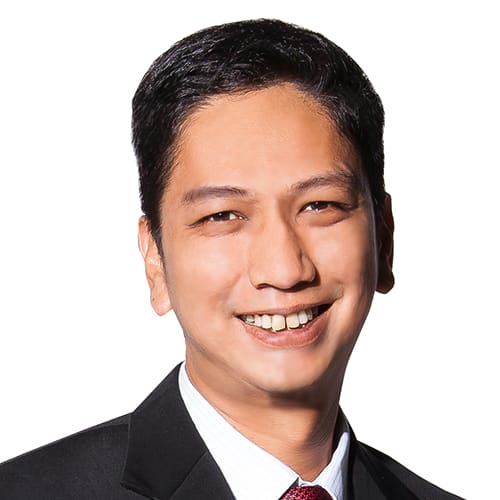Brash but popular: Indonesia’s new finance minister Purbaya wins public praise but worries investors
While ordinary Indonesians celebrate his boldness, investors and analysts have expressed some unease about Purbaya’s expansionary policies and combative tone.
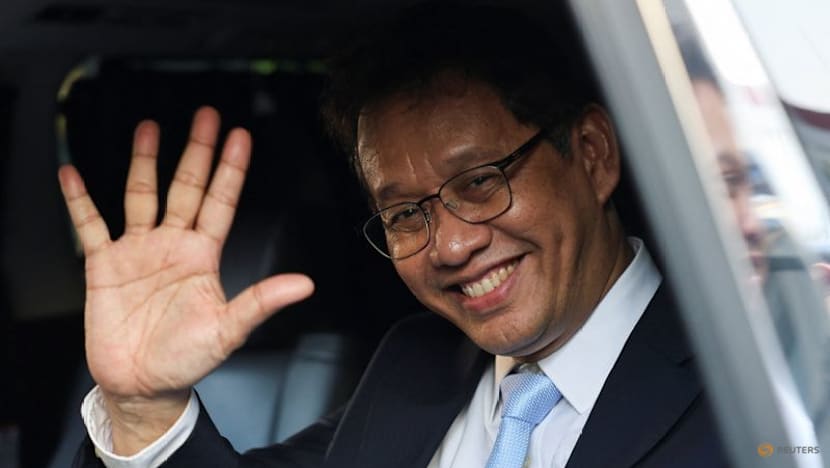
Indonesia's newly appointed Finance Minister Purbaya Yudhi Sadewa waves to journalists following his inauguration at the Presidential Palace in Jakarta, Indonesia, on Sep 8, 2025. (Photo: Reuters/Willy Kurniawan)

This audio is generated by an AI tool.
JAKARTA: In the two months since he became Indonesia’s finance minister, Purbaya Yudhi Sadewa has made headlines for his fiscal moves as well as his remarks.
He has redirected Indonesia’s “rainy day funds” with the aim of stimulating the economy, paved the way for more government spending at the expense of a widening deficit and issued a flurry of statements that have at times contradicted fellow ministers and senior officials.
Once a low-profile technocrat best known for leading a deposit insurance agency, Purbaya has quickly become one of the more recognisable faces in government with what observers say is his brash and unfiltered style.
“He is unafraid to speak his mind and he avoids technical financial jargon so ordinary people can understand what he aims to do with the economy,” Yusuf Rendy Manilet, an economist at the think tank Center of Reform on Economics (CORE), told CNA.
The public has taken notice.
In a study released by research firm Indikator Politik on Nov 8, Purbaya was voted the third best-performing minister, a feat by any measure for someone who, until recently, was unknown outside of Indonesia’s economic policy circles.
More than 1,200 people were polled by the research firm from Oct 20 to 27 to mark Prabowo’s first year in office.
But there are signs that some investors and analysts have been less enamoured with Purbaya.
His policy shifts are viewed as a sharp departure from the calculated approach of his predecessor Sri Mulyani Indrawati, who served as finance minister under three presidents and was a former World Bank managing director widely respected for her fiscal prudence.
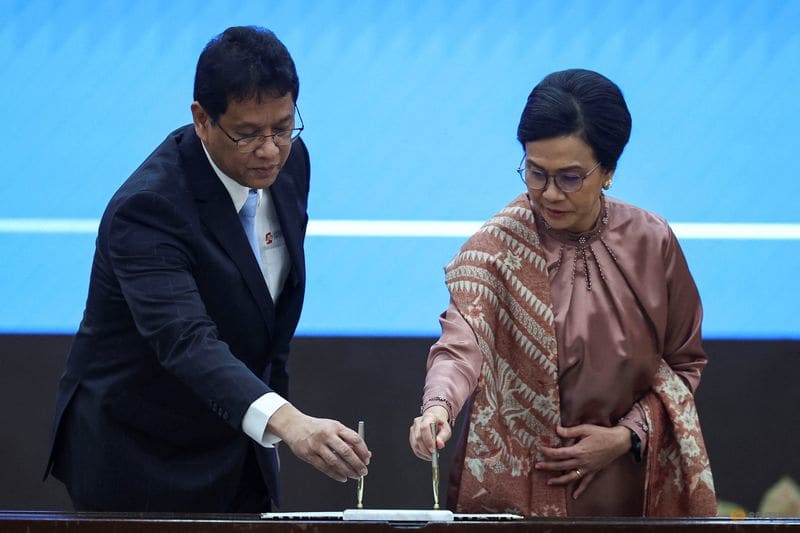
Just a few days after he was inaugurated in early September, Purbaya announced he would be withdrawing the US$27 billion sitting in Indonesia’s government coffers which Sri Mulyani had saved from past surpluses.
Since then, the minister has already withdrawn half of this accumulated budget surplus (SAL) and injected it into government-owned banks to improve their liquidity, a move which he believed would stimulate the economy.
“(Investors) are worried because (Purbaya) is using funds which should have been used in times of emergency to stabilise the rupiah or soften the impact of an economic shock like a financial crisis or another pandemic,” said Tauhid Ahmad of the think tank Institute for Development of Economics and Finance (INDEF).
The risk of such an economic shock is growing, warned Bhima Yudhistira of the think tank Center of Economic and Law Studies (CELIOS), as the global economy reels from United States President Donald Trump’s decision to unleash sweeping tariffs on nearly all major trading nations.
Purbaya has said he is still deliberating what the rest of the accumulated surplus will be used for, but assured that he would be using all of it.
LIKE A “COWBOY”
The 61-year-old began his professional career in the 1980s and 1990s as an engineer in the oil services industry before switching to finance in 2000.
For the next 15 years, he worked at the state-owned investment firm Danareksa as an economist, eventually rising to become president director of its securities unit.
Purbaya’s first role in government came in 2015, when he was appointed deputy at the Presidential Staff Office. He later moved across several ministries before being named chief of the Deposit Insurance Corporation (LPS) in 2020.
His term at LPS was due to end on Sep 23 but a few weeks before it expired, President Prabowo Subianto appointed him finance minister in a major Cabinet reshuffle.
“I was surprised. I thought I was being pranked,” Purbaya told reporters at the Presidential Palace after being sworn in, recalling how he had received the news from State Secretary Prasetyo Hadi.
The reshuffle followed widespread anti-government protests in late August and early September over cost of living, the elites’ perceived indifference to the plight of ordinary citizens and other issues.
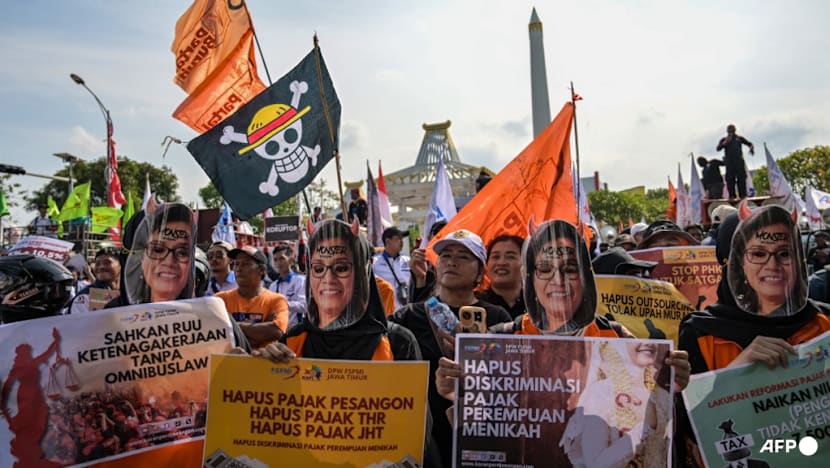
During one of the demonstrations, one of Sri Mulyani’s homes on the outskirts of Jakarta was ransacked by rioters. She was not at the residence at the time.
On Sep 8, Sri Mulyani was sacked with reportedly an hour’s notice through a phone call from Prabowo’s office.
Just hours after taking his oath on the same day, Purbaya told reporters at the Finance Ministry that he aimed to “create economic growth of six to seven per cent”, adding that such growth would calm public anger.
“They will be busy finding jobs and eating well, as opposed to demonstrating,” he said, as quoted by Tempo.
The remark drew widespread condemnation for being insensitive and boastful. A day later, Purbaya apologised, promising to be more mindful of his words.
“I’m new here. You could say I’m a bit of a ‘surprised minister’. So when I talk, according to Sri Mulyani, I come across like a cowboy,” he said at his handover ceremony.
“When I was at the LPS, no one was really monitoring me, so I could relax. But it’s different at the Finance Ministry — one wrong word and it immediately gets twisted here and there.”
Despite that vow, Purbaya continued to make waves.
He publicly criticised how other ministers managed their programmes and finances, including how the National Nutrition Agency (BGN) handled President Prabowo’s flagship free-meal initiative. His open criticism forced several ministers and senior officials to defend themselves in the press.
On Oct 15, Purbaya criticised Indonesia’s sovereign wealth fund Danantara for using dividends it received from state-owned enterprises for buying government-issued bonds, a move he felt was too safe and unprofitable.
“I criticised (Danantara). If you put (money into) so many government bonds, then where is your expertise?” he told reporters after a closed-door meeting with Danantara officials as quoted by CNBC Indonesia.
A day later, Danantara chief investment officer Pandu Sjahrir was quoted by Detik as saying that the bond investment is temporary as the fund searches for more lucrative investments.
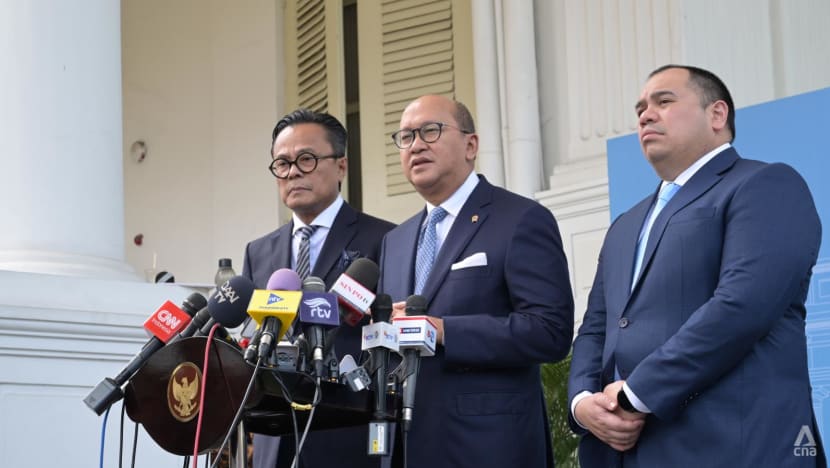
“These debates should have stayed behind closed doors. Criticising other ministers in public only creates the perception that the government is not united,” said Bhima, adding that such public spats could erode investor confidence.
But Purbaya has shown no sign of changing tack so far.
“I have been criticised by many people. They said, don’t criticise this minister or that minister. I’m safeguarding (the government’s) money to keep it safe, while also making sure the government’s economic programmes run well,” Purbaya said at a discussion on Prabowo’s first year in office in Jakarta on Oct 16, as quoted by Metro TV.
Purbaya even said Prabowo has insisted he should keep being brash.
“I just found out that some people can’t accept me. But that’s fine. For the sake of the country, I don’t care,” he said on Oct 30 as quoted by CNN Indonesia. “This is an order from President Prabowo. I’m merely the President’s extended hand — in a softer version.”
Purbaya’s candour and policies seem to have struck a chord with the public.
According to the November survey by Indikator Politik, 84.1 per cent of respondents said he was doing a good job, placing him third among all ministers, behind Agriculture Minister Amran Sulaiman (84.9 per cent) and Cabinet Secretary Teddy Indra Wijaya (84.5 per cent).
Both men, however, have been in the public eye far longer than Purbaya. Amran previously held the same post during Joko Widodo’s first presidential term, while Teddy, a former personal aide to President Prabowo, first gained prominence as a constant fixture during Prabowo’s 2024 election campaign.
The survey also revealed that 1.5 per cent of respondents said they would vote for Purbaya if he were to run for president, placing him seventh among potential 2029 contenders.
That puts him behind former presidential candidates Anies Baswedan (third, 9 per cent) and Ganjar Pranowo (sixth, 3.7 per cent), while Prabowo came out on top at 46.7 per cent.
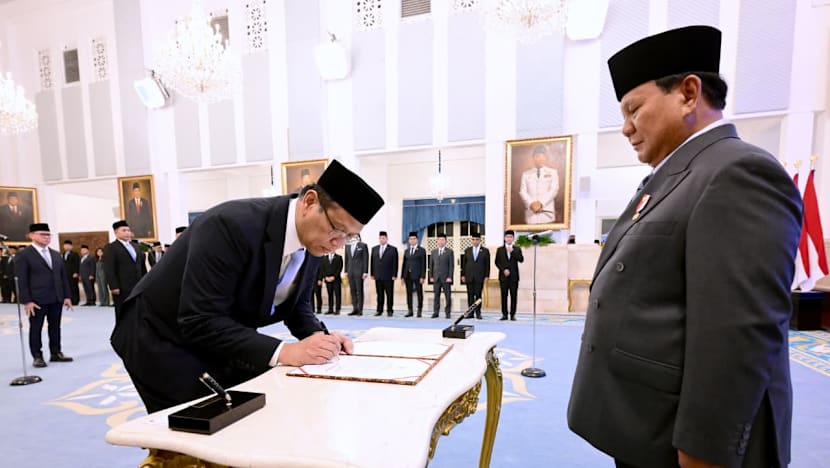
Notably, neither Amran nor Teddy made it into the top 10 list of potential presidential candidates.
Even before the survey was released, several political parties had openly praised Purbaya, signalling their interest in recruiting the outspoken minister, who does not belong to any party.
But Purbaya quickly dismissed the prospect, telling Antara news agency on Oct 29: “I am not interested in politics.”
“NO NEED TO PANIC”
Purbaya’s policies and tone have proven less popular with investors and market analysts.
At the start of the year, Indonesia had seen strong foreign interest in government bonds, with capital inflows peaking at around US$4.6 billion in late August. That trend reversed after Sri Mulyani was replaced.
According to Bloomberg, as of November 17, foreign investors had sold a net US$187.6 million worth of Indonesian government bonds — making Indonesia the only Southeast Asian market to experience net foreign bond outflows this year.
“They were cautious when Sri Mulyani was replaced. But after seeing the markedly different direction her successor was taking, that caution soon turned into worry,” said Bhima.
Beyond withdrawing the surpluses his predecessor had set aside as “rainy day” reserves, Purbaya also revised the 2026 budget prepared under Sri Mulyani.
His new budget, approved by parliament on Sep 19, raised state spending from US$228.5 billion to US$231.9 billion, while widening the projected deficit from US$38.6 billion (2.48 per cent of gross domestic product, or GDP) to US$41.6 billion (2.68 per cent of GDP).
Analysts said the move was risky, as it left little fiscal room to cushion the impact of Trump’s renewed tariffs, which have battered Asia’s manufacturing industries.
Purbaya also appeared unconcerned about Indonesia’s rising debt, which reached US$547 billion, or 39.8 per cent of GDP, as of June 2025.
“Look at European countries — they’re all close to 100 per cent now… there’s no need to panic,” he said during an economic experts’ gathering in Jakarta on Oct 29, as quoted by CNBC Indonesia.
At a seminar organised by the American Chamber of Commerce on Nov 17, Vice Finance Minister Thomas Djiwandono also sought to downplay concerns about rising debt and deficits.
“We remain committed to maintaining the deficit within a safe and sustainable threshold of three per cent of GDP. Our objective is to keep fiscal risks well-managed while ensuring sufficient room to finance the government’s priority programmes,” he said.
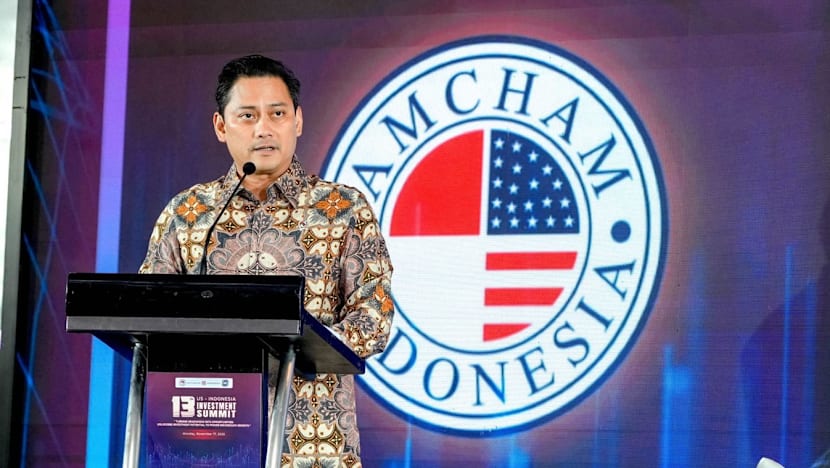
Thomas was referring to programmes like the free-meal initiative, whose 171 trillion rupiah (US$10.2 billion) budget is expected to double next year.
Prabowo’s administration is also working to set up more than 80,000 village cooperatives, provide free health checks to millions of Indonesians as well as build millions of affordable housing units for low-income families. These programmes are expected to cost Indonesian taxpayers billions of dollars every year.
The impact of Purbaya’s policies will be clearer in February when the Indonesian statistics bureau reveals its economic growth report for the final quarter of 2025.
DELIVERING ON THE PRESIDENT’S PLEDGE
In his inaugural State of the Nation address in August, Prabowo said his administration would work to narrow Indonesia’s budget deficit by boosting state revenue and cracking down on what he called adherents of “greednomics”: Corrupt officials, illegal miners and tax evaders.
The president said once these so-called “revenue leakages” are plugged, Indonesia’s budget could swing into surplus by 2027 or 2028.
As finance minister, Purbaya has vowed to follow through on that pledge. He said his ministry is pursuing a list of the 200 biggest tax evaders who, together, owe the state about 60 trillion rupiah (US$3.7 billion).
“So far, 8 trillion rupiah has been collected. Some have agreed to pay in installments, and others we’re still chasing. They’d better not be playing games with us,” Purbaya said on Nov 14, as quoted by Kompas.
He also plans to clamp down on the smuggling of second-hand clothes from overseas, which he says threatens domestic manufacturers.
But experts remain sceptical, noting that similar pledges have been made before.
“Whenever there’s a scandal, there’s always a promise of reform. A few things get fixed, a few procedures are tightened — then slowly, everything returns to normal,” said Achmad Nur Hidayat, an economist at the National Development University Jakarta.
Achmad said Purbaya must close loopholes that enable such abuses and punish officials who aid tax evaders and smugglers.
Meanwhile, Purbaya’s decision to redirect part of the government’s surplus to inject capital into several state-owned banks has yet to produce results.
According to Bank Indonesia, credit growth in October stood at 7.36 per cent, down from 7.70 per cent in September.
But Purbaya appears undeterred.
“We won’t (review it),” he told reporters on Nov 20 when asked if his office was reconsidering the policy. “In fact, I’ll add more money (to the banks).”
Such remarks worry analysts.
“Credit growth is slowing because consumers are postponing big purchases and businesses are holding back expansion amid economic uncertainty, not because banks lack capital,” said Yusuf of CORE.
Experts say Purbaya must rely more on data and evidence before making bold fiscal moves, be willing to listen to criticism and adjust the course if his policies prove counterproductive.
“At the end of the day, a good finance minister isn’t judged by popularity in surveys,” said Bhima. “It’s about how well he delivers on promises of reform and economic growth.”
Editor's note: The article previously wrongly stated Achmad Nur Hidayat as being from Syarif Hidayatullah Islamic University. He is from the National Development University Jakarta. We are sorry for the error.








